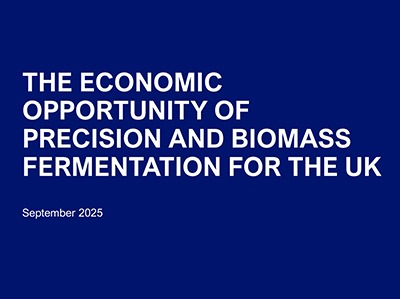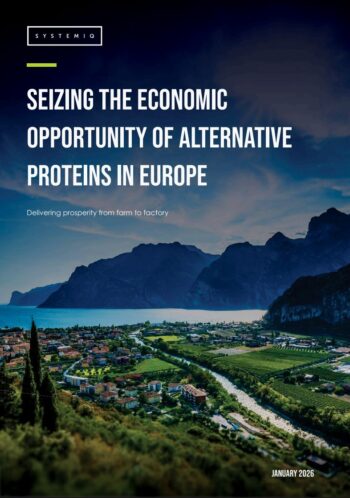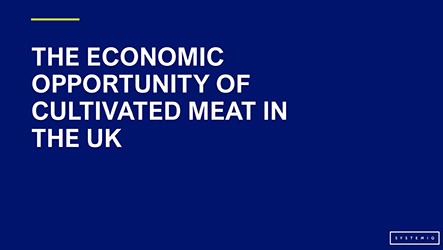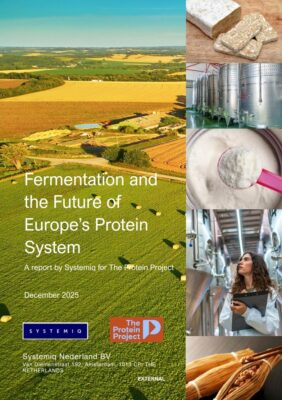Innovative approaches to fermentation could add £9.8 billion to the UK economy by 2050 – and £2.4 billion in exports – according to new research by Systemiq supported by the Good Food Institute Europe.
Fermentation has been a cornerstone of food production for thousands of years, but researchers and companies are now using cutting-edge methods to produce animal-free meat and dairy ingredients with the taste and texture of traditional products. These processes can cut climate emissions, reduce deforestation, and even upcycle food waste into nutritious food.
Systemiq’s analysis found that while current policies would see the UK fermentation market reach £2.4 billion by 2050, more ambitious support – including increased investment in research, infrastructure and regulatory innovation – could boost the sector to £6 billion annually. This would make it comparable in size to the ship building industry today, with a third of growth driven by precision fermentation ingredients such as animal-free dairy and egg proteins.
The Food Standards Agency (FSA) has announced a one-year Innovation Research Programme to strengthen regulators’ scientific understanding of fermentation. Backed by £1.4 million in funding from the Department for Science, Innovation and Technology’s new Regulatory Innovation Office, the programme aims to ensure new fermentation-made products can reach the UK market safely and efficiently.
Government-funded university research centres – including Imperial College London’s Microbial Food Hub and the National Alternative Protein Innovation Centre at the University of Leeds – are already advancing the science behind these foods.
If successfully scaled, these methods could transform the UK’s food and drink sector, diversify protein sources, and significantly reduce the environmental impact of producing everyday foods.




